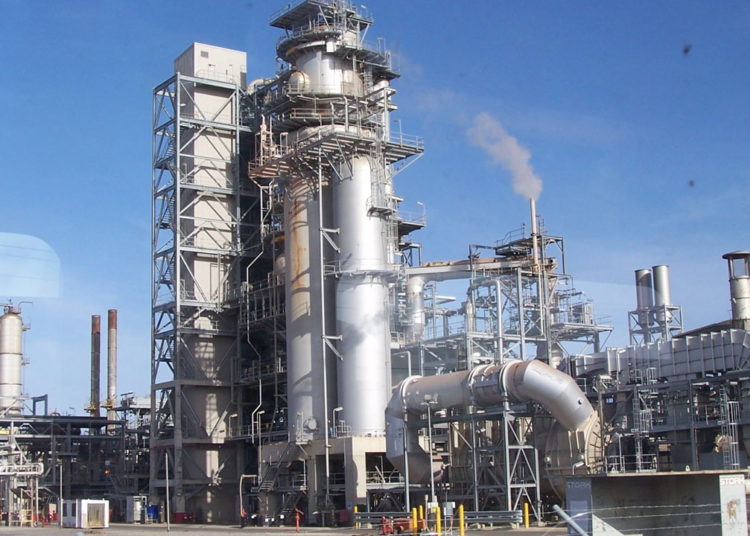
An Harvard University alumnus and prominent member of the Council for the Regulation of Engineering in Nigeria (COREN), Engr Abdullahi Hashim, has commended President Bola Tinubu over the successful reactivation of the Port Harcourt Refinery and Warri Refinery and Petrochemical Plant.
Hashim, who is also member of the Nigerian Society of Engineers (NSE) and a fellow member, College of Diplomacy and International Relations (FCDIR), said it is refreshing to note that Tinubu has demonstrated his capacity to change the narrative in the production of petroleum products for domestic use and export.
Speaking in a statement he personally signed and made available to journalists on Sunday, Hashim said with the combined production of petroleum products from Port Harcourt and Warri refineries, the nation will be able to free up its foreign spending on importation of petrol and shore up the value of Naira.
According to Hashim, there is the need to commend Tinubu in ensuring the successful reactivation of the two refineries, saying that it is on record that past governments since 1999 were unable to achieve the present feat.
Hashim, who is also a member of the Nigerian Institute of Civil Engineers (NICE), said Tinubu’s positive action in the petroleum industry will encourage the country’s refining and development of Petrochemical Industry in the country rather than exporting huge capacity of crude produced.
He said, “It is important to commend President Tinubu in ensuring that two of the four refineries began operations within his first 18 months in office. This is salutary and cheering news.
“This is no mean feat as Port Harcourt and Warri refineries had been laid prostate since 1999 by previous administrations while humongous millions of dollars were spent on suspicious Turn Around Maintenance (TAM) that never turned anything around but only left Nigerians more hopeless.
“I am also using this medium to urge the Nigerian National Petroleum Company Limited (NNPC) to ensure accelerated repair works on the Kaduna Refinery and the 150,000 bpd in the old Port Harcourt Refinery in order to bolster Nigeria’s status as Africa’s leading refiner of petroleum products.
“The successful reactivation of Port Harcourt and Warri Refineries will stimulate the development of downstream plants/facilities that will optimise energy by-products which will help establish a portfolio of petrochemicals, chemicals and fertiliser companies.
“The reactivation of the two refineries will make it possible for Nigeria to change from raw materials supplier to value-added product supplier.
“With this positive development, we as a country will have a local production of competitive goods which will help appreciate the Nigeria naira currency in relation to major international currencies.
“As an expert in civil engineering and a stakeholder, my clarion call is not only for the federal and state government alone but also to individuals that have what it takes to invest in oil and gas business for the economic growth of Nigeria
“It is important to note that oil and gas are the most important sources of raw materials because they are cheaper, more accessible and can be processed easily from the refineries. Today, many products including gasoline, cosmetics, fertilizers, detergents, synthetic fabrics, asphalt and plastic are made from petrochemicals.”
The Harvard University alumnus also stated that the present situation has changed the previous narrative where some people claimed that Nigeria had wasted about $3billion to overhaul refineries that had not produced a drop of petroleum products.
He added that though Warri refinery is not 100 per cent completed , it is necessary to remind Nigerians that not many people can remember the last time the refinery produced AGO (diesel), Kerosene and naphtha which are now being produced by the refinery.
Meanwhile, Hashim has called for more consultations on the new tax reforms bill before the National Assembly, saying there is the need for understanding from the stakeholders to arrive at a consensus on the bill.
He said, “The new tax reform bill has sparked a very heated debate across the country, the division cut across the regional lines. Thus, the north is against it while south specifically Lagos is in support.
“The North felt as if as they were shortchanged, but that is not the case, business happens everywhere in this country, but the problem with the North is that, majority of the businesses in the north happens at informal level, this phenomenal has created a lot of leakage in VAT to the state where the consumption happened.
“I will admonish the northern Governors to invest in farms and factories, not airports and dry land bridges. The stake is much higher than absolute personal interest.
“Whether the bill is passed or not, the Tax Reform Bill opened a Pandora box of structural deficiencies and economic inadequacies that must be addressed with the greatest sense of urgency. The consequences of not wearing an authentic, high performance and value-driven thinking cap is unimaginable at this stage.
“It is high time our governors work towards human capital development and raise the purchasing power of the people and come up with policies that will promote corporate businesses that are taxable and vatable.”
SOURCE: LEADERSHIP




